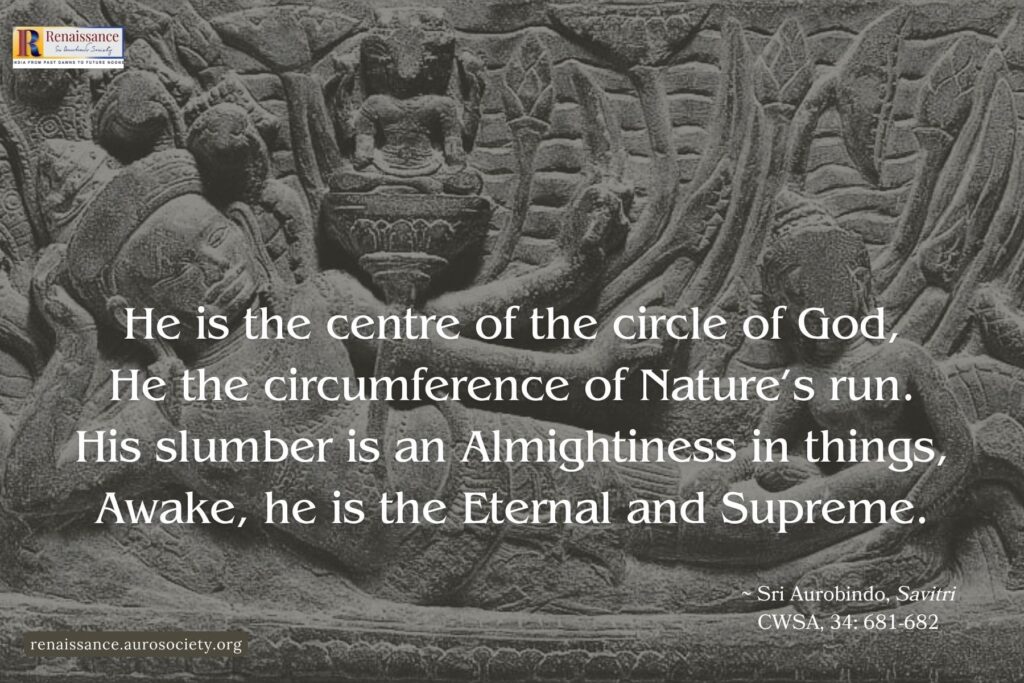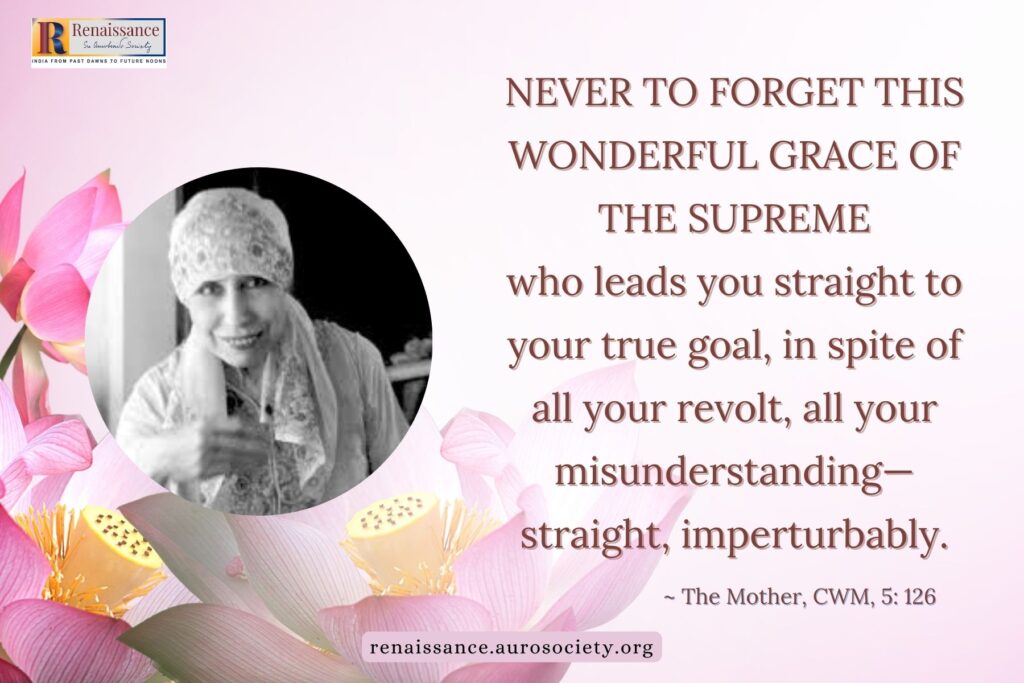In some of Sri Aurobindo’s speeches delivered during the years of his leadership of the Indian freedom movement we find great clarity on his vision of a nation.
A nation is a living entity, full of consciousness; it is not something made up or fabricated. A living nation is always growing; it must grow, it must attain its loftier heights. This may happen after a thousand years or in the next twenty years, but happen it must.
~ CWSA, Vol. 7, p. 812
Let us meditate on all that depth and truth expressed in just a few words here. What does the idea of a nation as a living entity mean to us? It is not merely an intellectual idea, such as the one made notorious by the over-used or over-abused term “Idea of India.”
It is not only an emotional sentiment. But it is a throbbing living force, it is life itself. And Life must grow, must evolve, must live fully to realize its potential. That’s what a nation is. A living, growing, evolving entity, one seeking to realize its inner being, its nation-soul.
These words motivate one to sincere action and flare up one’s aspiration for a better future of this living, conscious entity called our nation. These words stir the deepest and purest feelings of love for the nation, for the people, but steer away from a jingoistic, egoistic fervor that is at the base of virulent ill-will and hatred towards other nations.
In Sri Aurobindo’s vision for the future of the modern nation-state of India, Indian nation is not a colonial copy but one that is grounded in a deeper and truer vision that is indigenously eternal yet newly evolving, that is native yet inclusive and integrative of all that continues to come from the world outside.
Reflecting a bit on Sri Aurobindo’s idea of the nation and its applicability to Indian experience provides a fair amount of order and organization to some of the mental chaos or confusion many present-day Indians carry – often unknowingly – regarding contemporary India’s social and political scene, and their way of viewing their Indian identity, their cultural and civilizational history.
In our present issue, this is the work we take up – to reflect on the deeper ideas of nation and nationalism through the lead essay we highlight.
A. V. Sastri’s detailed and thorough analysis, titled ‘The Psychology of Indian Nationalism’ was first published in two sections in Sri Aurobindo Circle (1949 and 1950). The length of this essay – given that it explores the topic in great detail and brings together the relevant themes from many of Sri Aurobindo’s works – requires us to present it in several parts.
To make this significant work much more accessible and reader-friendly, we have taken up the 1949 section, re-organised it slightly, and are presenting half of it in this month’s issue, by dividing into three smaller parts. In the next issue we shall present the remaining of the 1949 section, followed by the 1950 section in future issues.
A deeper national consciousness is also facilitated through the stories that are recounted to the people of a nation. Stories of visionaries who laid the foundation of a nation, stories of heroes who fought for the integrity and honour of the nation, stories of brave men and women who sacrificed everything to defend their motherland – who can deny the impact such stories of courage and glory can have on the hearts and minds of our youngsters?
Yet, our standard history curricula have often ignored or whitewashed such stories of valour, for reasons ranging from a faulty understanding of the deeper psychological ways to create harmony in the society to ideological prejudices or even unabashed politics.
For our Book of the Month, we feature a review of a recently published book which tells the stories of 52 hero-warriors who sacrificed their lives for the honour and dignity of their motherland. Rajat Mitra writes a review of Manoshi Sinha Rawal’s book “Saffron Swords: Centuries of Indic Resistance to Invaders,” while Beloo Mehra in her introduction explains how the theme of the book and its intention to shift the existing mainstream narrative fit in harmoniously with the multi-faceted reawakening of India.
We are guided in our work by the Light and Force of the words of Sri Aurobindo. For this issue’s “Guiding Light” section, we have selected relevant passages that speak to the themes being explored – a deeper and truer understanding of nation and nationalism, and the necessity of and the right approach to awaken the youth to this true spirit of nationalism.
We hope our readers will enjoy going through this month’s features as much as we enjoyed working on these.
As always, we offer this work at the feet of Sri Aurobindo and the Mother.
In gratitude,
Beloo Mehra (for Renaissance Editorial Team)
Wish to write for the journal? Click here.
Cover image: Punyabhoomi, by Eeshaan Mahesh, used with permission.



